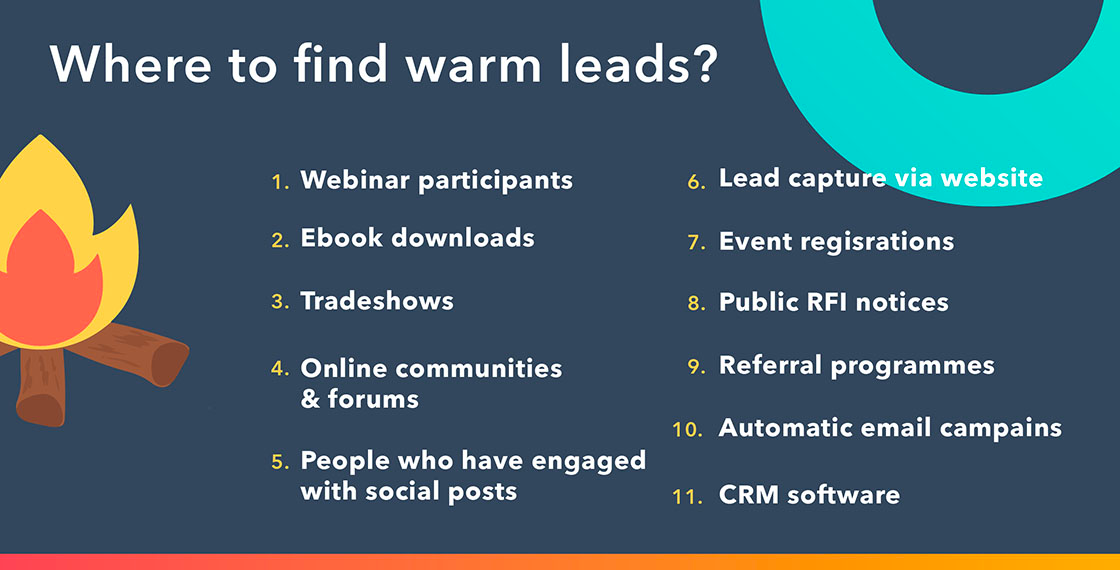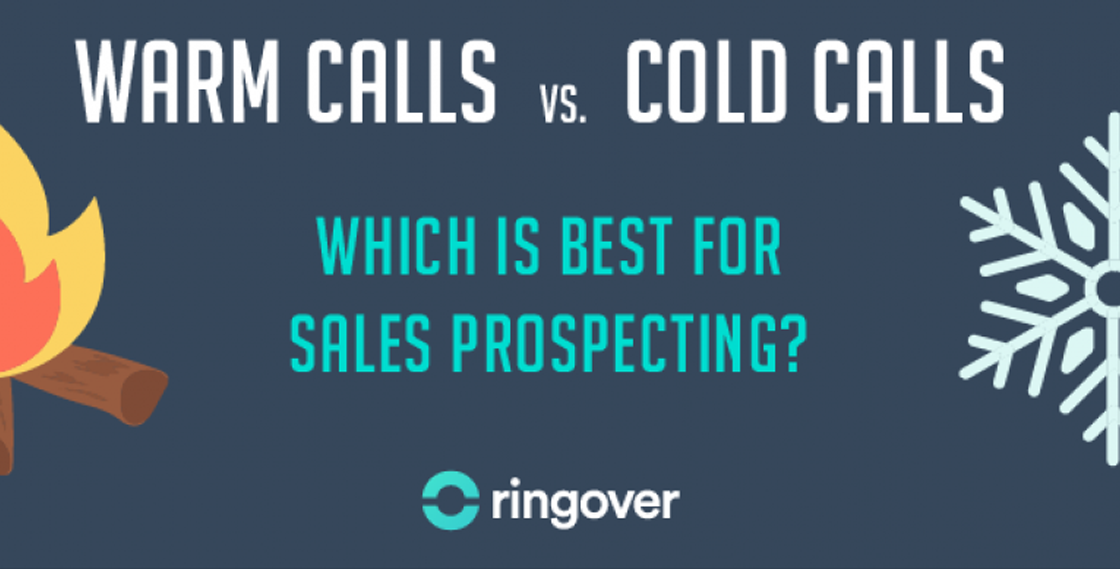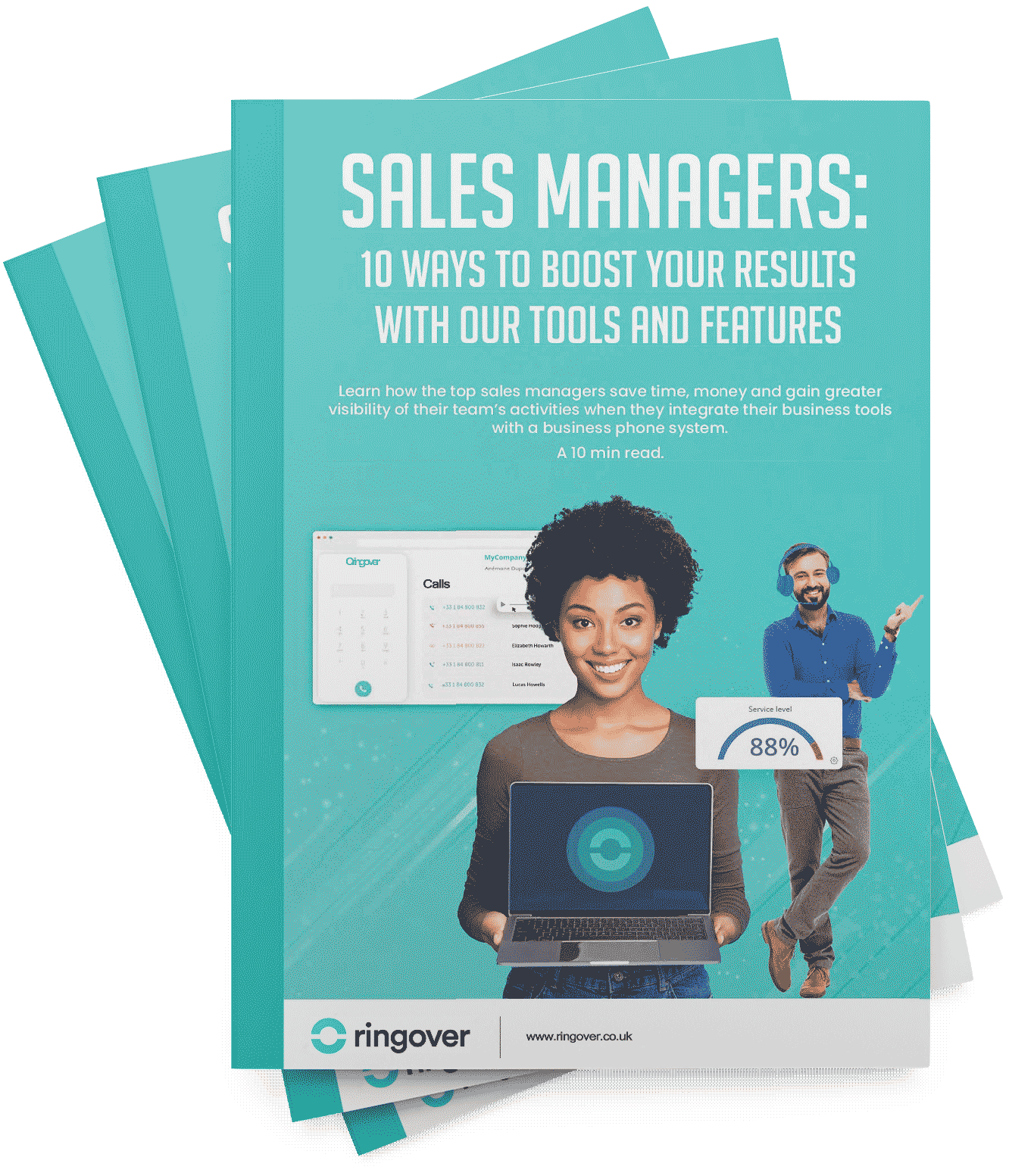Summary
- What is cold calling?
- What is warm calling?
- Key Differences: Cold Calling vs Warm Calling at a Glance
- Cold Calling vs. Warm Calling: Which One to Choose?
- Cold Calling Best Practices
- How Does Warm Calling Work?
- Empower Your Calling Strategy with the Right Technology
- Cold Calling vs Warm Calling FAQ
- Citations
If 'sales call' conjures an unknown salesperson trying to sell you something, that's cold calling. Despite its challenges, cold calling can still deliver results. Rain Group found that 82% of buyers accept meetings with sellers who reach out to them, and 54% of buyers took sales meetings by phone [1]. Those findings suggest sales professionals shouldn't dismiss cold calling outright–they should avoid common pitfalls and continue to pick up the phone.
You've probably heard the term warm call, too. To clarify the difference between cold and warm calls, consider the likelihood of closing a sale by phone in terms of temperature: the less familiarity and interest on either side, the "colder" the contact.
What is cold calling?

Cold calls happen when a salesperson has little insight into a prospect's needs and the prospect knows little about the company or offering[2]. These calls usually aim for short-term goals (quick hits) rather than refining a target market. Picture an enthusiastic salesperson prospecting broadly with little prior information.
Cold calls are often considered a nuisance; many end with the recipient hanging up before the salesperson finishes. If the lead listens, they may focus on getting back to their day rather than listening carefully. In a nutshell: the less information and interest on either side, the less likely to close the sale, making the contact "cold."
What is warm calling?
Warm calls are the result of prior sales prospecting, usually with a lead generation software. This prior interaction establishes a connection, making the lead "warm." This initial interest can come from various sources[3]. These calls require more upfront preparation but are often more fruitful because the leads have been prequalified. A warm lead may have:
- Called your company previously about a product or service
- Left a business card at a trade show
- Filled out a survey or form on your website
- Engaged with your content on social media
- Downloading an ebook, whitepaper, or other marketing material.
Because salespeople have more information, they can tailor their pitch, and prospects have already expressed some interest–so they're more willing to listen.
Deploying Ringover’s business phone system gives your team access to a powerful sales call software which supports call campaigns.
Key Differences: Cold Calling vs Warm Calling at a Glance
To better understand the two approaches, it helps to compare them side-by-side. The following table highlights the main differences between cold and warm calling.
| Feature | Cold Calling | Warm Calling |
|---|---|---|
| Lead Awareness | Prospect has no prior knowledge of your company | Prospect has shown interest in/engaged with your brand |
| Prior Contact | None | Some interaction has occurred (email, social media, content download) |
| Success Rate | Generally low, around 2% [4] | Significantly higher |
| Conversion Rate | Significantly lower | Can be around 20% [5] |
| Goal | Primarily lead generation and a first meeting | Nurturing interested leads and moving them closer to a sale |
| Trust Level | Very low; trust must be built from scratch | Trust baseline already exists |
Cold Calling vs. Warm Calling: Which One to Choose?
The most effective sales strategy is not about choosing one method over the other, but about creating a hybrid strategy where both methods complement each other. The right balance between cold calling vs warm calling depends on your specific goals and business situation.
Cold calling is most effective when:
- You are a new company building a client list from scratch.
- You are entering a new market and need to fill your sales pipeline quickly.
Warm calling is ideal for:
- Following up on inbound leads from marketing campaigns.
- Nurturing prospects who are already in the sales tunnel.
Cold calling alone can waste good leads and resources. A powerful strategy is to "warm up" cold leads. Consider warming leads first with email campaigns, social network connections, and warm introductions before picking up the phone. This turns a cold outreach into a warmer, more receptive conversation. A strong B2B prospecting strategy uses virtual call center software, is regularly measured and iterated, and balances warm and cold outreach.
Cold Calling Best Practices
Cold calling can be an effective way for startups and small businesses to build a sales pipeline–if you're prepared for rejection and deeply understand your product. Not everyone succeeds immediately, but with persistence and refinement, results can be strong. Keep these tips in mind:
Cold Calling Do's
- State your purpose within the first 10 seconds, e.g., "I'm calling to help you lower your energy costs this winter."
- Be ready for tough questions. Acknowledge issues (e.g., negative reviews) and explain improvements your company has made.
- Ask open-ended questions to encourage discussion, e.g., "Are you happy with how much you're currently spending on your energy bill every month?"
- Practice active listening. Paraphrase to show understanding and help prospects articulate their needs.
- Take detailed notes to guarantee follow-up.
- Leave brief, concise voicemails.
- Use time-saving tools for repetitive tasks so you can spend more time selling.
- Remember to qualify leads.
Cold Calling Don'ts

- Avoid calling too early or too late; schedule calls to match the prospect's local time and likely availability windows.
- Go in with too little experience. Do your research so it doesn't show.
- Be too insistent. Persistence is good, but being pushy harms your reputation.
- Overpower your prospect. Let them open up, pause, and ask questions without interruption.
- Get overly discouraged if hung up on or met with aggression. Research by Velocify suggests six is often the magic number of calls to win a sale [6].
- Waste their time or yours–know when to wrap up the call gracefully.
How Does Warm Calling Work?
Warm calling requires more tailored preparation than cold calling because you typically have context about the lead. The next sections describe ways to optimize warm call strategies.
Sources of warm leads

Categorize leads by their source (how you obtained their contact information) so you can tailor outreach and prioritize higher‑intent prospects. Leads may come from:
- Webinars
- Downloads of marketing materials
- LinkedIn or other social media outreach
- Website landing page forms (completed or incomplete)
- Subscriptions or requests for information
- Automated email campaign analytics (opens, time spent, link clicks)
- Word-of-mouth and referrals
When reaching out, reference the specific prior interaction. Example opener:
"Hello Mary, this is Tom from ABC Consulting. You recently posted a question on our Facebook page–I wanted to respond in detail if you have a few minutes."
Set up referral programs that reward existing clients and offer low‑risk incentives to new customers–e.g., one-month free trial, a percentage discount, or a waived setup fee–and track referrals with unique codes. When you call referrals, mention the referrer and any incentives.
Empower Your Calling Strategy with the Right Technology
To optimize both cold and warm calling efforts, modern sales teams rely on advanced communication platforms. A VoIP phone and call center software can streamline workflows and empower agents to have more effective conversations.
Business phone systems like Ringover offer sales call software with key features that boost calling productivity, including:
- Power Dialer: Automates dialing from a list, saving time and allowing agents to focus on conversations.
- Native Integrations: Connect your business software via integrations to automatically logs calls and provides agents with context for every conversation. Ringover offers integrations with popular software like Salesforce, HubSpot, Bullhorn, Zendesk, and more.
- Voicemail Drop: Allows agents to leave a pre-recorded voicemail with one click.
These tools help streamline workflows, allowing sales teams to make more calls and have more meaningful conversations. Using dedicated sales call software ensures every outreach is as informed and productive as possible.
Ringover offers these tools to help manage and scale outbound calling efforts. Start your free trial today!
Cold Calling vs Warm Calling FAQ
What is the difference between cold calling and warm calling?
Cold calling involves reaching out to prospects who have had no prior interaction with your business. They haven't shown interest, visited your website, subscribed to your content, or engaged with your brand in any way.
Warm calling, on the other hand, targets prospects who have already engaged with your company–for example, by downloading a resource, attending a webinar, opening an email, or being referred by an existing customer. Warm calls typically experience higher conversion rates because rapport or recognition is already established.
Why is cold calling illegal?
Cold calling itself is not illegal, but it is regulated in many countries to protect consumers from unwanted or deceptive solicitation. It becomes illegal when companies:
- Call individuals listed on a Do-Not-Call (DNC) registry
- Use misleading or fraudulent scripts
- Fail to obtain consent where required
- Use auto-dialers to call mobile numbers without permission (in some jurisdictions)
- Call outside legally permitted hours
Most regions (U.S., U.K., EU, Canada, Australia) enforce strict telemarketing rules. As long as businesses comply with these regulations, cold calling remains legal.
What are the 3 C's of cold calling?
The “3 C's” of cold calling commonly refer to:
- Confidence – Speaking clearly, professionally, and with authority to build trust quickly.
- Clarity – Being concise and direct about who you are, why you're calling, and what value you offer.
- Consistency – Reaching out regularly, following up, refining scripts, and tracking performance for ongoing improvement.
These principles help callers maintain professionalism and improve conversion rates.
What's the difference between a hot call and a cold call?
A hot call is made to a highly engaged prospect who has shown strong buying intent, such as requesting a demo, replying to outreach, or explicitly asking for more information. These leads are often close to making a purchasing decision.
A cold call, by contrast, is made to someone with no prior relationship or demonstrated interest. Cold leads typically require more nurturing and discovery before moving further into the sales funnel.
Citations
- [1]https://customerthink.com/new-rain-group-center-for-sales-research-study-debunks-common-myths-about-sales-prospecting/
- [2]https://smarte.pro/blog/cold-calling-vs-warm-calling
- [3] https://ai-bees.io/post/cold-calling-vs-warm-calling
- [4] https://cognism.com/blog/cold-calling-success-rates
- [5] https://cleverly.co/blog/cold-calling-vs-warm-calling
- [6]https://s3-us-west-2.amazonaws.com/prod-salesboost/AssociatedFiles/Courses/216/Definitive%20Sales%20Call%20Statistics.pdf
Published on June 10, 2020.



